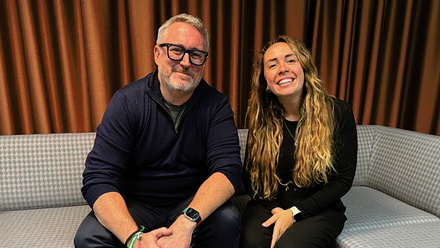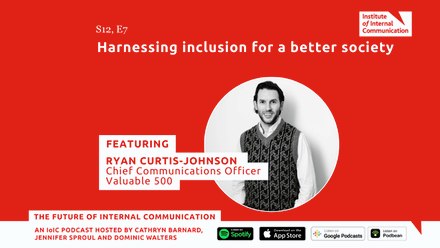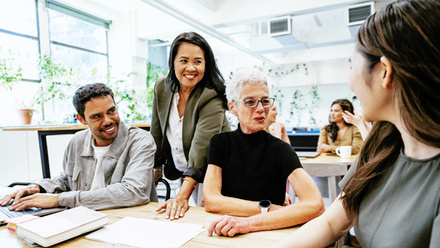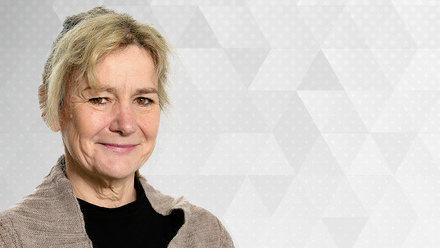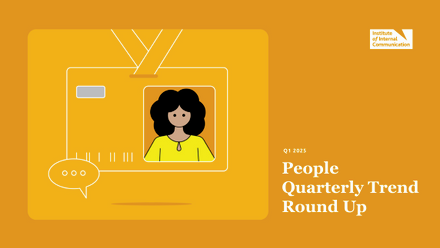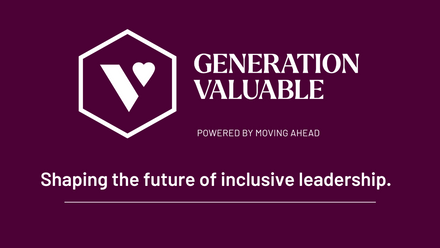The IoIC was approached by a member Rammi Janack to provide a safe space for women from an ethnic minority background, working as internal communication professionals to have a conversation.
Rammi was joined by: Christina Fee; Kamiqua Lake; and Sonia Squires, who took it in turns to discuss:
-
Their challenges
-
Their barriers
-
How they overcame stigma, direct and indirect racism and other barriers
As women from ethnic minority backgrounds working in internal communication.
To ensure confidentiality of the conversation, the event was not recorded, so this blog looks at the themes discussed and the ways forward.
The conversation between the women on the panel had a definite common theme - all had faced prejudice and adversity – racism and sexism – in the workplace.
The panel felt that, especially when they were more junior they were often overlooked for jobs and promotions, as well as not being asked to participate in meetings, with one commenting: “I am the darkest person in the room, but no one can see me.”
There was also a sense of people misunderstanding them, being referred to as another ethnicity or religion: “I was often referred to as Muslim, which I am not.”
There was a feeling that becoming a mother impacted their career even more – overlooked for promotions, having late night meetings organised at the last minute, many things these women did not see when it came to their white, often male, counterparts.
The panel then went on to talk about how they tackled these issues. With ‘sheer tenacity’ and to not be afraid to talk about it and raise it. There was a reminder from the panel that by doing this, you are not being hypersensitive – it is happening and it needs to change.
The advice was to use internal communication techniques to turn situations around: where is this person coming from, what’s their angle/background, how can you turn that around and change behaviour for the desired outcome?
Does it ever get better, one audience member asked.
Yes, was the resounding answer, but there is still a long way to go. The panel felt it got easier, the more senior you become. But they also had advice for those not in senior positions:
-
Beware of ‘fake allyship’ – seek out those (leaders and peers) who will support you
-
Find a job/organisation you feel welcome at – remember that when you are going for a job, you are interviewing them as much as they are interviewing you, ask about the policies, the culture, the behaviour – better to find out before then after and if it’s the right organisation for you they will welcome these questions
-
Have a network you trust, you can talk things through with and practice difficult conversations with
-
Have belief in yourself, your ability and your voice, if you believe then the people around you
A question was raised about DEI surveys – both internal and external to the organisation. The panel agreed that when it comes to DEI surveys/scoring you need to look between the lines of the data – DEI isn’t just a score, it is about the culture. Approach it like any employee survey – think about how the data works for you, why it is being collected and make changes if that’s what the data is saying.
The panel ended with some tips on professional development, how to start making positive change:
-
Get feedback on your performance/behaviour from key stakeholder – what you could do more of and the constructive criticism too, and then show you are responding to this and why that is good for the organisation
-
Find real allyship – one way you can do this be the expert in the room , do your research e.g. ‘I’ve just seen this on LinkedIn’
-
Unlock the conversations – be curious rather than angry, e.g. ‘can I ask you what you meant by’ ‘could you just explain to me xxx’
-
And then get those around you to be curious and not afraid to ask you – be your authentic self
Although the conversation did not talk about what organisations should do, this is an important area, with the onus on the organisation to make the changes. Members can find information about this, and the overall topic of equality, diversity and inclusion on the Knowledge Hub.
The IoIC also has initiatives such as #IChoseIC that looks to attract more diverse talent to the profession, as our Chief Executive Jennifer Sproul explains: “At IoIC, we recognise that attracting diverse talent is fundamental to our mission. However, it's equally essential to delve into diverse topics and understand the lived experiences of our members. Only by combining these efforts can we create a profession that not only attracts but also advances and acknowledges great talent in a truly inclusive manner for all.”
The IoIC will continue to support this conversation, please do look out for updates. If you are a member who would like to initiate a conversation with other members, please do use the IoIC Community or drop [email protected] an email.

